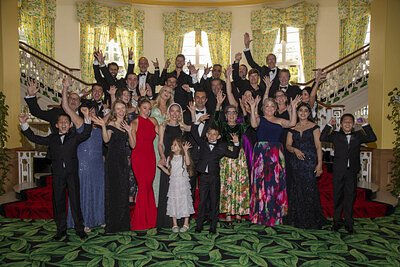
Beyond Luxury: Private Jet Charter Firm Charts Course for Ethics and Sustainability
Paramount Business Jets celebrates two decades of growth, but its commitment extends beyond profits. The firm is pioneering transparency, ethical practices, and social responsibility in the private aviation sector.
Beyond Luxury: Private Jet Charter Firm Charts Course for Ethics and Sustainability
NEW YORK, NY – November 13, 2025
From Startup to Sustainability Leader
Paramount Business Jets (PBJ) is celebrating its 20th anniversary, marking two decades of growth in the competitive private aviation industry. Founded in 2005 with a $5,000 loan, the company has evolved from a fledgling startup to a global player, but its success story isn’t solely defined by financial gains. PBJ is increasingly recognized for its commitment to transparency, ethical conduct, and a surprisingly robust social conscience, differentiating it in a sector often associated with exclusivity and excess.
“The early days were challenging, of course,” notes one industry insider familiar with the firm’s origins. “But Richard Zaher always had a clear vision: build a company founded on trust and integrity. That's not always the easiest path in this industry.” That commitment appears to be paying off. PBJ has achieved four-time recognition on the Inc. 5000 list, demonstrating consistent growth and resilience. More impressively, the company is proactively addressing concerns around sustainability and social responsibility, areas historically overlooked within the luxury travel space.
Pioneering Transparency in a Shadowy Industry
The private jet charter industry has traditionally been criticized for a lack of transparency, with opaque pricing structures and varying levels of service quality. PBJ has attempted to disrupt this status quo. A key factor in this change has been Richard Zaher’s leadership within the Air Charter Association of North America (ACANA). He played a pivotal role in drafting FAA Rule 295, establishing new standards for ethical practices within the industry.
“The goal was simple: to elevate the standards and restore trust,” explains a source involved in the rule-making process. “It wasn’t about penalizing anyone, but about setting a clear benchmark for transparency and accountability.” While the impact of Rule 295 is still unfolding, it represents a significant step toward greater professionalism and consumer protection.
This commitment to transparency extends to PBJ’s internal operations as well. The firm was the first in the industry to develop a fully transparent jet card program, eliminating hidden fees and providing clients with a clear understanding of pricing. This approach has earned PBJ a reputation for fairness and reliability, attracting a loyal customer base.
Beyond Carbon Offsets: A Holistic Approach to Sustainability
Recognizing the environmental impact of private aviation, PBJ has taken steps to mitigate its carbon footprint. The company launched an open-source carbon offset tool in 2019, allowing clients to calculate the emissions associated with their flights and invest in carbon offsetting projects. What sets PBJ apart is its decision to make this tool freely available to other aviation companies, fostering a collaborative approach to sustainability.
“It’s not about having a proprietary advantage,” says a spokesperson for the company. “It’s about making it easier for the entire industry to reduce its environmental impact.” While carbon offsetting is often viewed as a temporary solution, PBJ is exploring other avenues for sustainable aviation, including investments in sustainable aviation fuels and electric aircraft technologies.
Giving Back: A Commitment to Social Responsibility
PBJ’s commitment extends beyond environmental sustainability to encompass a broader range of social responsibility initiatives. The company actively engages in philanthropic efforts, focusing on communities in need. For over a decade, PBJ has been conducting annual humanitarian missions to McDowell County, West Virginia, one of the poorest counties in the United States, delivering food, clothing, and essential supplies to families.
“It’s a deeply personal commitment for Richard,” says a long-time employee. “He grew up understanding the challenges faced by underserved communities, and he wanted to create a company that gives back.” PBJ’s philanthropic efforts also extend internationally, with the company providing aid to earthquake victims in Turkey and supporting anti-bullying programs for young people. Additionally, PBJ established the Paramount Business Jets Scholarship Fund at Embry-Riddle Aeronautical University, supporting aspiring aviation professionals. These initiatives are not merely seen as PR exercises but as integral to the company’s core values.
“We believe that businesses have a responsibility to make a positive impact on the world,” explains a company representative. “It’s not just about profits; it’s about doing the right thing.” The firm’s commitment to community involvement and social responsibility positions it as a leader in a sector increasingly scrutinized for its ethical and environmental practices. As PBJ embarks on its next two decades, it appears poised to continue charting a course toward a more sustainable and responsible future.
